Originally published on the 10th of February 2025, updated on the 7th of November 2025.
Shipping your car should be easy and stress-free, not confusing or stressful. That’s why understanding auto transport insurance is one of the most important parts of preparing for your vehicle shipment. Whether you’re moving across the country, buying a car online, or helping a family member relocate, knowing what your car shipping insurance covers helps you protect your vehicle and your peace of mind. Let’s take a look at everything you need to know about vehicle transport insurance in 2025.
Key Takeaways
- Auto transport insurance protects your vehicle from unexpected damage during shipping.
- Every licensed car transport company must provide insurance that meets federal requirements.
- Always verify your car carrier insurance details before booking to know exactly what’s covered.
- Adding supplemental insurance can offer extra peace of mind for high-value or luxury vehicles.
- Working with trusted car shipping companies like ShipYourCarNow ensures a smooth, stress-free shipping experience.
What Is Auto Transport Insurance?
If you are considering shipping a car you have likely asked yourself the question ‘What is Auto Transport Insurance?
Let’s be honest, no one’s perfect. Even the best auto shipping companies have the occasional bad day.
Trucks travel long distances, weather can change in an instant, and sometimes accidents just happen.
That’s exactly why auto transport insurance exists.
Also known as vehicle transport insurance, it’s designed to protect your car while it’s being shipped by a licensed carrier.
Think of it like your everyday car insurance, but for when your car isn’t on the road, it’s on a transport truck instead.
Every professional auto transport company is required by the U.S. Department of Transportation to carry two essential types of coverage: liability insurance and cargo insurance [Source]. These policies help cover damage that could occur at any point during the journey, from loading to delivery.
In simple terms, auto transport insurance makes sure that if something unexpected happens ,like flying road debris, theft, or an accident, you’re not the one paying for the damage.
It’s your safety net on the road between point A and point B.
What Kind of Insurance Do Auto Transport Companies Have?
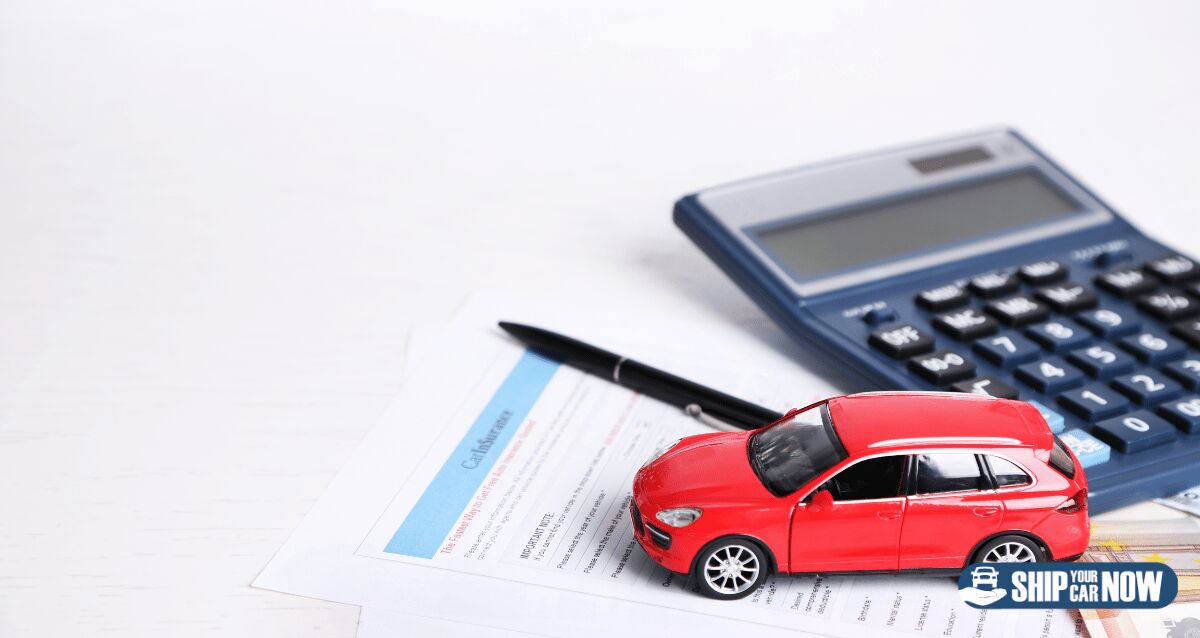
When it comes to protecting your vehicle, most car shipping carriers offer two main types of coverage: liability insurance and cargo insurance. Understanding how they differ helps you make the right choice, and avoid surprises later. Let’s take a look.
1. Basic Liability Coverage
Let’s start with the basics. Liability insurance is the minimum coverage every auto transport company is required to have by law. [Source]
It protects against damage the carrier might cause to someone else’s property or other vehicles during transport.
That’s great if something happens on the road involving other cars, but here’s the catch, it doesn’t usually cover damage to your own vehicle.
When you’re checking out a company, ask to see their insurance certificate.
Look for the coverage limit and the insurance provider’s name.
Reputable carriers are always open about this information because they have nothing to hide.
If a company hesitates to share it, that’s a red flag.
2. Cargo Insurance
This is the coverage that really matters for you.
Cargo insurance protects your car while it’s being shipped.
It covers damage caused by things like accidents, fire, or theft while your vehicle is in the carrier’s care. Think of it as your car’s personal bodyguard for the trip. [Source]
The amount of coverage depends on the carrier’s policy, so always double-check the limits before you book.
For example, if the transport truck is in an accident or a storm causes damage during transit, cargo insurance would kick in.
Some companies include basic cargo insurance with every shipment, while others let you purchase supplemental coverage for high-value vehicles, like luxury, exotic, or collector cars that deserve a little extra protection.
Is Auto Transport Insurance Included in My Shipping Quote?
Good news, in most cases, yes!
Most licensed auto transport companies include carrier insurance in your total shipping cost.
That means if something happens while your car is on the truck and the carrier is at fault, their insurance policy should cover the damage up to the limit stated in the contract.
However, not all policies are created equal.
Coverage amounts and terms can vary quite a bit from one company to another. Some carriers offer higher protection limits, while others stick to the basic legal minimum.
Before you book, it’s worth taking a few minutes to ask some key questions:
- What is the total insurance coverage per vehicle?
- Does the policy include weather damage or natural disasters?
- Are there any exclusions I should know about?
- Is there a deductible, and how much is it?
Asking these questions upfront helps you understand exactly what’s covered and what’s not.
The more informed you are, the easier it is to choose a company that gives you the right balance of price, protection, and peace of mind.
What Does Auto Transport Insurance Cover?
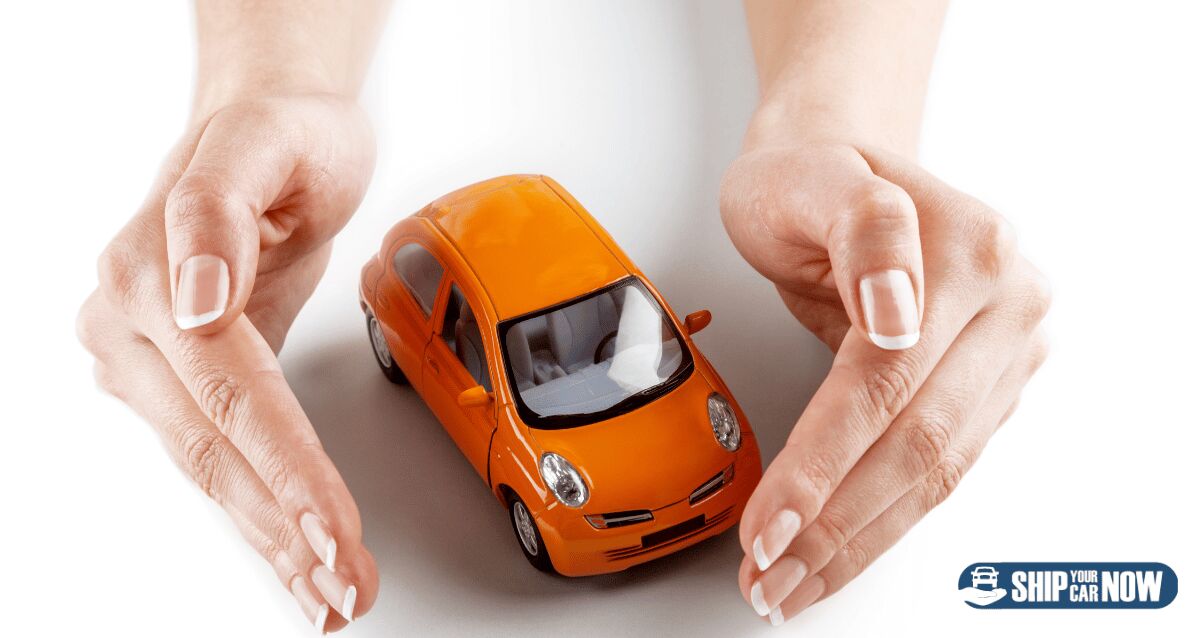
Policies can differ depending on the transport company, but most auto transport insurance requirements share similar features.
Generally, car shipping insurance covers damage caused by:
- Accidents or collisions during transit
- Fire or explosion
- Theft or vandalism
- Damage from road debris
- Loading and unloading incidents
When damage occurs, the carrier’s insurance company reviews the bill of lading (the inspection report completed before pickup and after delivery) to confirm if the damage happened while your vehicle was in their care.
If your claim is approved, the insurance provider will pay for repairs or issue compensation, depending on what the policy covers.
What Isn’t Covered by Auto Transport Insurance?
This is one of the most common questions people ask.
While auto transport insurance provides valuable protection, it’s essential to understand what auto transport insurance doesn’t include.
Most policies exclude:
- Personal belongings left in the vehicle
- Pre-existing damage
- Normal wear and tear from travel (like dust or small dirt spots)
- Damage caused by leaking oil or fluids from another vehicle
- Acts of nature such as floods or hail (unless you have extra coverage}
If you plan to ship personal items inside the vehicle, it’s essential to know that most carrier insurance will not cover them.
It’s best to remove everything from the car before pickup or ask your auto transport broker about possible supplemental coverage options.
What If I Want More Auto Transport Coverage?
If you own a high-value vehicle or simply want more coverage for peace of mind, you can add supplemental or gap coverage insurance.
This provides extra protection beyond the carrier’s basic policy.
Supplemental insurance can help cover:
- Natural disasters such as hail, flooding, or fire
- Damage beyond the carrier’s maximum policy limit
- Higher replacement or repair costs for exotic vehicles
While auto transport companies must meet federal insurance requirements, it’s common for customers to add more gap insurance coverage through a separate insurance agent or through the carrier’s insurance provider.
It’s also a good idea to check with your personal auto insurance policy. Some providers may offer limited coverage while your vehicle is being transported, depending on your plan and the insurer.
Open vs. Enclosed Transport: Does It Affect Insurance?
Yes, it can. The type of auto transport you choose influences both your cost and your level of protection.
- Open transport is the most common and affordable option. Your car will be shipped on an open trailer alongside other vehicles. It’s safe for most standard cars, but leaves the vehicle exposed to weather and road debris.
- Enclosed carrier transport keeps your car protected inside a fully enclosed trailer. This option provides extra protection from the elements and is highly recommended for classic, luxury, or collector vehicles.
Both types of car shipping carriers include insurance coverage, but enclosed shipping typically offers higher coverage limits and fewer exclusions.
Before booking, ask the carrier to confirm how their auto transport insurance applies to your chosen transport type.
How Much Insurance Coverage Do I Need?
Coverage needs vary depending on the vehicle’s value, the transport distance, and your personal risk tolerance.
For everyday vehicles, basic cargo insurance combined with standard liability coverage is usually enough.
For more expensive vehicles, adding supplemental insurance or choosing enclosed transport offers extra peace of mind.
When requesting a car shipping quote, always ask for details about the included insurance coverage, deductible, and claims process.
A transparent company will outline everything before you sign.
How to Check If a Carrier’s Insurance Is Legitimate
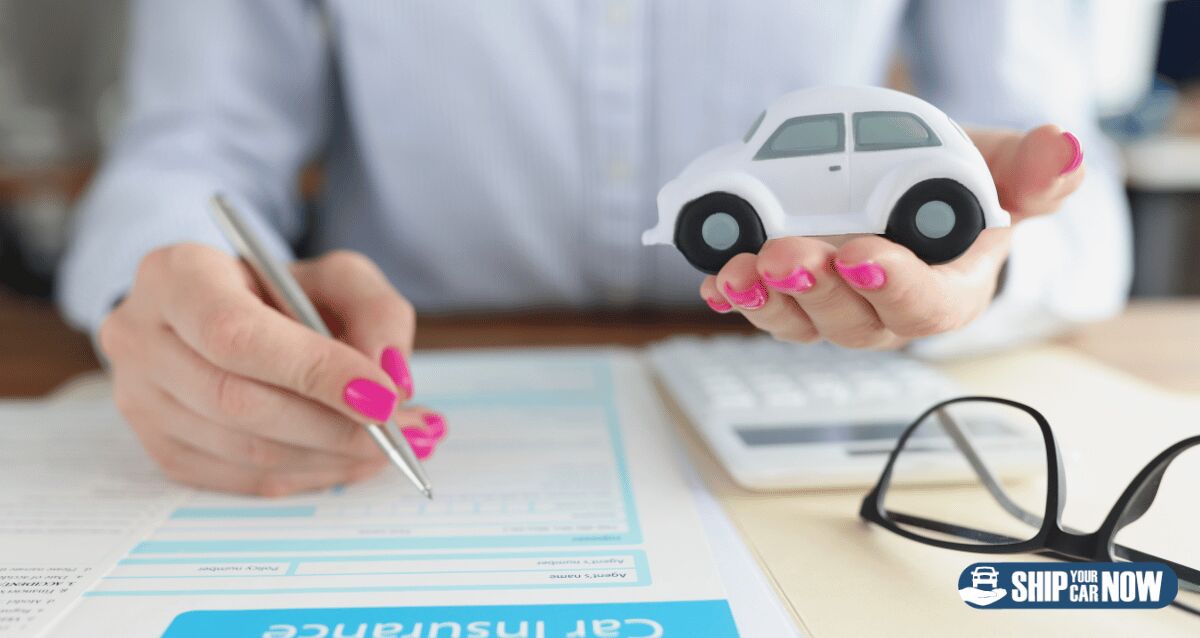
When researching auto shipping companies, it’s smart to verify their credentials. Reliable carriers will always provide proof of insurance and licensing.
You can check their credentials using the Federal Motor Carrier Safety Administration (FMCSA) website.
Look for their MC number or USDOT number, which indicates they are legally registered to operate and carry insurance.
Another good sign of a reputable company is accreditation with the Better Business Bureau (BBB).
BBB-accredited transporters are more likely to maintain transparent insurance policies and provide coverage as promised.
What Happens If Damage Occurs During Shipping?
Even with all the right precautions, accidents can happen. Here’s what to do if you believe your vehicle was damaged during shipment.
Inspect your vehicle on delivery
Before signing the final paperwork, carefully check your vehicle’s condition against the pre-shipment inspection.
Note any new damage
Record scratches, dents, or other issues on the bill of lading and take photos from multiple angles.
Contact the carrier or your broker immediately
The sooner you report the damage, the smoother the insurance claim process will be.
Submit a claim
Provide copies of all photos, inspection reports, and shipping documents to the insurance provider.
Wait for evaluation
The carrier’s insurance company will review your claim to confirm responsibility.
Once approved, they’ll cover damages according to their insurance policy terms.
If the carrier’s policy does not cover the damage, you can check your own auto insurance or supplemental coverage for possible compensation.
Choosing the Right Shipping Services Company

Picking the right transport company is just as important as choosing the right insurance coverage.
The two go hand in hand when it comes to protecting your vehicle and enjoying a smooth, stress-free shipping experience.
A reliable auto transport company will not only treat your car with care but also make sure you feel supported from start to finish.
Reputation, licensing, transparency, and insurance coverage are all signs you’re dealing with professionals who take your trust seriously.
Here are our top tips for choosing the right auto transport services:
Verifying Insurance Information
Before you book, always check that the company you’re working with has valid and adequate insurance.
Don’t hesitate to ask for proof, a reputable carrier will be happy to provide their insurance certificate and explain the coverage in simple terms.
This step gives you peace of mind that if something unexpected happens, your vehicle is protected.
If a company avoids sharing this information or seems vague about its policy details, that’s a red flag worth paying attention to.
Taking a few minutes to confirm the insurance coverage upfront can save you from big headaches later.
Always read through the terms carefully and make sure the level of protection meets your expectations.
Evaluating Company Reputation
A company’s reputation says a lot about the kind of experience you can expect.
Spend a little time researching online reviews, ratings, and customer testimonials.
Reliable transport companies tend to have a solid track record, consistent feedback, and clear communication throughout the process.
You can also ask for references or check how long the company has been in business.
Experienced carriers that have strong connections within the transport industry usually provide more dependable service and take pride in maintaining high standards.
In short, the more transparent and communicative a company is, the more likely they’ll handle your vehicle with the care it deserves.
Comparing Quotes and Services
Price matters, but it shouldn’t be the only factor guiding your decision.
When comparing car shipping quotes, look beyond the total cost and focus on what’s actually included.
Here are a few tips to help you make a smart choice:
- Get multiple quotes from reputable companies to understand the market rate.
- Look closely at the details. Does the price include insurance, taxes, and delivery fees?
- Be cautious of prices that seem too low. Extremely cheap quotes can sometimes hide poor service or unexpected fees later on.
- Consider customer service. A company that answers your questions promptly and clearly is far more likely to deliver a smooth experience.
Choosing a transparent, well-reviewed, and properly insured company may cost a little more upfront, but it often saves you time, stress, and money in the long run.
Why ShipYourCarNow Ticks All the Boxes
If you’re looking for a transport company that checks every box, from reliability to insurance coverage, ShipYourCarNow makes it easy to ship with confidence.
- Licensed and insured carriers: We only work with fully licensed, insured carriers that meet or exceed all federal requirements.
- Built-in protection: Every shipment includes both liability and cargo insurance to keep your vehicle covered from pickup to delivery.
- Total transparency: We’re upfront about coverage limits before you book, so you always know exactly what’s included, no hidden fees or fine print.
- Trusted reputation: With more than 20 years in the business, we’ve built our name on trust, communication, and customer care.
- Support every step of the way: Our team keeps you updated, answers questions quickly, and makes sure your car is handled by professionals who treat it like their own.
In other words, we don’t just move cars, we move them safely, securely, and with total peace of mind.
Summary
Auto transport insurance is one of the most important parts of shipping your car safely. It protects your vehicle from unexpected damage, gives you confidence in your auto transporter, and ensures your investment is covered from pickup to delivery.
The key takeaway is simple: always ask questions, verify coverage, and understand what your insurance policy includes before handing over your keys. By taking a few precautions and understanding your options, you can have a smooth, stress-free shipping experience and the peace of mind that comes with knowing your vehicle is protected every mile of the way.
Your car deserves the best care and the right protection
With ShipYourCarNow, every shipment comes with verified insurance, trusted carriers, and real people ready to help every step of the way. Let’s make your next vehicle move easy, safe, and stress-free.
Get Your Free Car Shipping Quote
Frequently Asked Questions About Auto Transport Insurance
Do all car shipping companies provide insurance when transporting vehicles?
Yes, all licensed car shipping companies are required to provide insurance for the vehicles they transport. This usually includes both liability and cargo coverage. It’s always a good idea to confirm the coverage details with your car transport company before booking to make sure it meets your needs.
What does car carrier insurance actually cover?
Car carrier insurance protects your vehicle while it’s in the carrier’s care. It typically covers vehicle damage caused by accidents, theft, or fire during transport. However, policies can vary between carriers, so always ask what the policy covers and, what it doesn’t, before your car is picked up.
Are there specific auto shipping insurance requirements across state lines?
Yes. Federal regulations require all carriers operating across state lines to maintain active auto shipping insurance that meets or exceeds national standards. While the minimum is set by law, coverage amounts and exclusions can differ between carriers. Verifying this before shipping ensures a smooth shipping experience and peace of mind.
How are damage claims handled if something happens to my car during transport?
If vehicle damage occurs, your first step is to document it right away and note it on the bill of lading. Then contact your carrier or broker to start the damage claims process. Most car shipping companies work directly with their insurance provider to resolve claims quickly, but keeping detailed photos and paperwork helps speed things up.
What factors affect the level of customer insurance coverage I need?
Several various factors determine how much coverage makes sense for you, including your vehicle’s value, the distance it’s traveling, and the type of car carrier you choose (open or enclosed). A reputable car transport company will walk you through your customer insurance options and may offer insurance upgrades for added protection during transit.

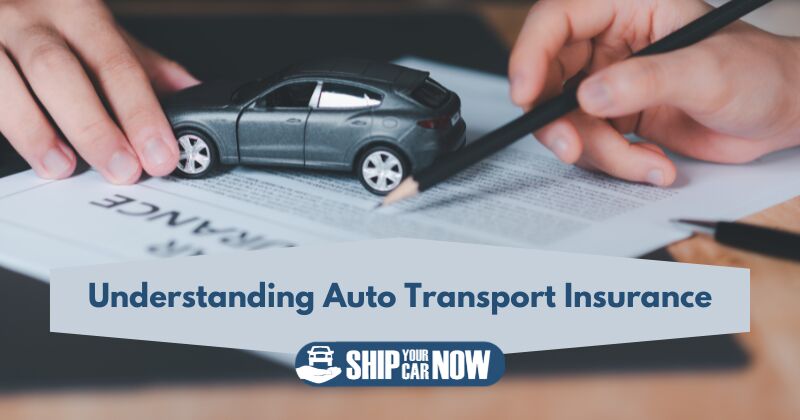
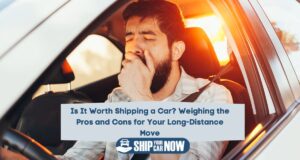
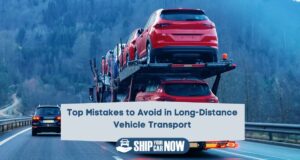


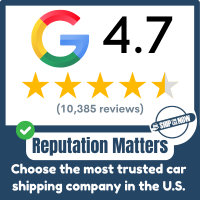
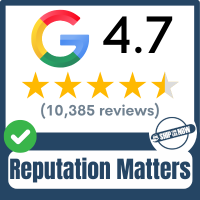
Senior automotive logistics professional with a passion for the industry and a 10+ year history of accomplishments. Proven track record of exemplary client management working with both RMCs, Van Lines and OEMs. Keen ability to react to an ever-changing marketplace while offering superior technology solutions, programs and services. Architect of award winning auto transport portal technology offering transparency and agility to clients, agents and transferees. Successful team builder and leader easily managing budgets with effective leadership, strategic planning, and problem-solving capabilities.